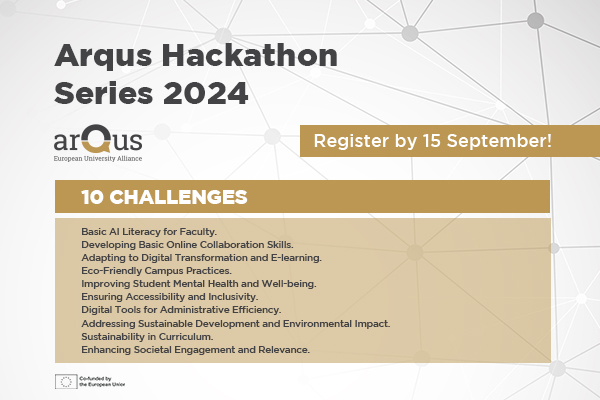What has the EU done for higher education in the past five years?
|
06 Jun 2024Between today and 9th June, citizens of the 27 Member States of the European Union are called upon to elect the 720 Members of the European Parliament who will represent the 450 million people living in the EU for the next 5 years. Check out the EU’s achievements in higher education over the past five years. Let’s make our voices heard and help shape the future of Europe!
When the last European Parliament elections were held in 2019, no one could have imagined that the following five years would see the spread of a COVID pandemic and the return of war to European soil.
In only five years, the world has changed and global challenges are becoming more severe. For instance, climate change is accelerating, digitalisation and artificial intelligence are changing our societies, populism and misinformation are on the rise, Europe is affected by demographic changes, and European values such as press and academic freedom are under threat in some European countries. Yet the EU has been able to react and stand firm in the face of these challenges.
This is due, in part, to the close cooperation in education and training that has been developed over the last 35 years, mainly thanks to the Erasmus+ programme. Since 1987, Erasmus+ has provided transformative experiences for more than 15 million people to study, teach, learn and be trained abroad, while reinforcing the European and international dimension of learning and innovation in education through thousands of mobility and cooperation projects.
In 2021, Erasmus+ was strengthened to support the European Union’s efforts to make the European Education Area a reality by 2025. Its budget for the period 2021-2027 was doubled thanks to the support of the European Parliament. With a larger budget, the Programme has been able to reinforce its inclusive dimension, support the twin green and digital transitions, and foster innovation and resilience in education and training in the difficult context of the pandemic and the war in Ukraine.
In the field of higher education, the Erasmus+ programme offers new mobility opportunities and more financial support for those who need it. Students who, for whatever reason, cannot go abroad for long periods of time can participate in blended mobility activities, combining a shorter physical stay abroad with virtual activities. Students with fewer opportunities now receive more aid in all countries.
The programme has also responded quickly to unforeseen events, allowing Ukrainian students to come and study in Erasmus+ countries and Ukrainian universities to receive support from their European partners.
In November 2023, the European Commission presented a proposal called “Europe on the Move”, which was adopted by the European Ministers of Education. It sets the following ambitious targets for the coming years: at least 23% of European higher education graduates should benefit from a mobility period abroad and at least 20% of them should be students with fewer opportunities.
By the summer of 2024, the European Universities Initiative, which is supported by the Erasmus+ programme, will bring together more than 60 alliances comprising 500 higher education institutions across Europe.
These European University alliances are transforming the European higher education landscape. By pooling their resources, the alliances develop joint inter-university campuses with seamless mobility opportunities, student-centred pedagogies and flexible learning pathways. This way, these alliances support transdisciplinary teams of students, staff and academics to work together with businesses, local authorities and civil society actors and help address the most pressing challenges of our time. They act as catalysts for the transformation of the higher education system for the benefit of the entire higher education community.
The European Commission, together with hundreds of stakeholders, has worked intensively to digitalise information exchange with the aim of facilitating the organisation of mobilities funded under the Erasmus+ programme. Thanks to the European Student Card Initiative and its three building blocks (i.e. Erasmus Without Paper, the Erasmus+ app and the European Student Card), universities and students participating in international mobility will be able to prepare all steps more easily online, for instance, receive their digital learning agreement or exchange advice on their home or host university.
All this has been possible thanks to the constant support of the European Parliament as a key player in the European decision-making process.
Your democratic vote matters! On June 9, don’t let others decide for you!
Resources and downloads [1]
2024 European elections – European Union (europa.eu) [2]
[1] https://together.europarl.europa.eu/es/download-centre
[2] https://european-union.europa.eu/institutions-law-budget/european-elections-2024_es
Communication prepared by the Spanish Service for the Internationalisation of Education (SEPIE).

16 Jul 2024